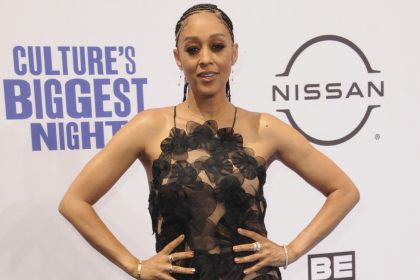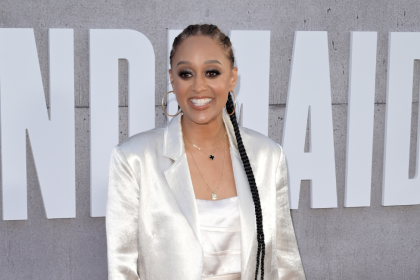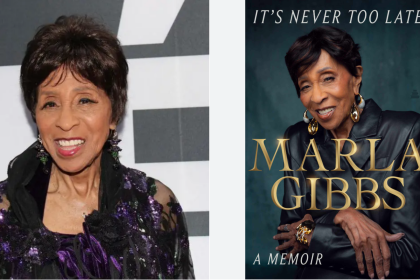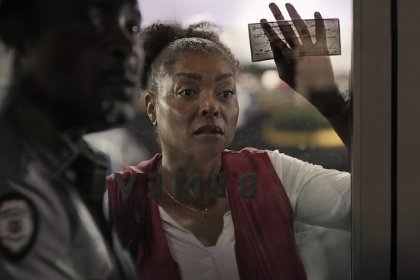Viola Davis has admitted she was “a little judgmental” towards Chadwick Boseman on the set of his final film. This revelation comes years after Boseman’s tragic passing from colon cancer in August 2020 at the age of 43.
The G20 actress starred with the late actor in 2020’s Ma Rainey’s Black Bottom and because Boseman kept his battle with colon cancer a secret, the Oscar-winning star admitted she was baffled to see his girlfriend and make-up artist rubbing his back and playing meditative music. The film would later earn Boseman a posthumous Oscar nomination for Best Actor, highlighting his exceptional performance despite his health struggles.
“There was a part of me that was a little judgmental — why do you need all that? Little did I know that they were doing it because he was dying,” she told The Times newspaper. Boseman had been diagnosed with stage III colon cancer in 2016, battling it privately for four years while filming several major movies including Black Panther.
Davis grew up in “abject poverty and dysfunction” in Rhode Island and used acting as an outlet for fun, but then the “sense of torture” that comes with the profession slowly seeped in. Her childhood experiences in poverty have influenced her approach to roles throughout her distinguished career spanning over three decades.
“For me and my sister, it was playing two wealthy White women who went out for tea in Beverly Hills with our chihuahuas. It was an imagination playground. Then, somewhere in there, pain entered into it,” she said. Davis’s journey from poverty to becoming one of Hollywood’s most respected actresses has been marked by overcoming significant personal and professional obstacles.
“Training, speech, technique, critics — there’s a sense of torture that you almost have to make peace with,” said Davis, who has earned numerous accolades throughout her career, including an Emmy, an Oscar, and two Tony Awards, making her the first African-American performer to achieve the “Triple Crown of Acting.”
The 59-year-old actress and two of her six siblings moved to Rhode Island with their parents when she was around 2 years old, leaving the others with their grandparents, and despite the difficulty of her home life with a violent alcoholic father, Viola still “believed in herself,” though she can see now how “damaged” she was. This challenging upbringing has been a source of both pain and strength throughout her life and career.
“Little Viola absolutely believed in herself in the midst of poverty. Even though I look back and go, ‘Oh she was so damaged,’ ” Davis said. She has been open about her difficult childhood in interviews and her memoir Finding Me, which became a bestseller.
“There is something deep within you that doesn’t believe that you’re worth it.” Despite her international success, Davis has spoken candidly about her ongoing struggles with imposter syndrome and self-worth, issues that stem from her early experiences.
Davis has previously been critical of her Oscar-nominated role as maid in the 1960s in The Help, admitting she worried she had “betrayed” herself and her “people” because the film ultimately catered “to the White audience.” The film has faced criticism for its portrayal of racial dynamics in the 1960s South.
And she admitted she thinks now that critics didn’t understand the choices she’s had to make in her career. As one of the few dark-skinned Black women to achieve leading roles in Hollywood, Davis has navigated an industry with limited opportunities for actors with her appearance.
“[Many of them] don’t understand the choices I had as a dark-skinned black actor with a wide nose and big lips. I don’t fit the mold of what many people feel a star would look like,” she said. Throughout her career, Davis has been a vocal advocate for diversity and inclusion in Hollywood, speaking out about the limited roles available to Black actresses.
“It’s not like I have complete agency over how films are seen, but I get the brunt of it. I’ve done the best I could with what I’ve been given,” she said. Despite these challenges, Davis has built an impressive body of work across film, television, and theater, earning recognition as one of the most talented performers of her generation.
The candid revelation about her time with Boseman adds another layer to the already poignant story of his final performance. Their work together in Ma Rainey’s Black Bottom stands as a testament to both actors’ extraordinary talents, with the film receiving five Academy Award nominations.















